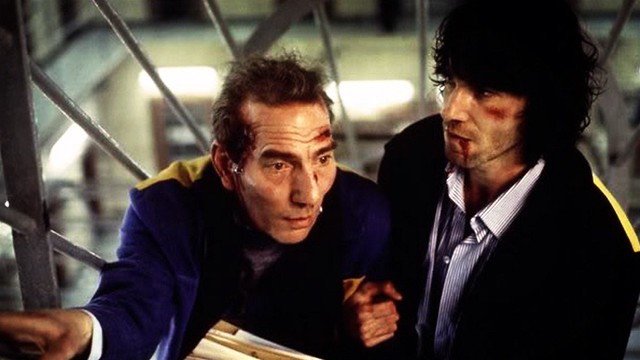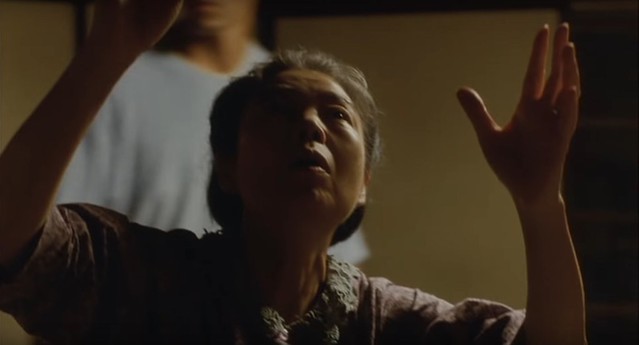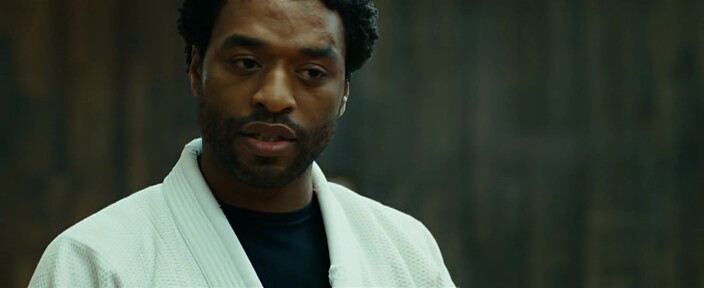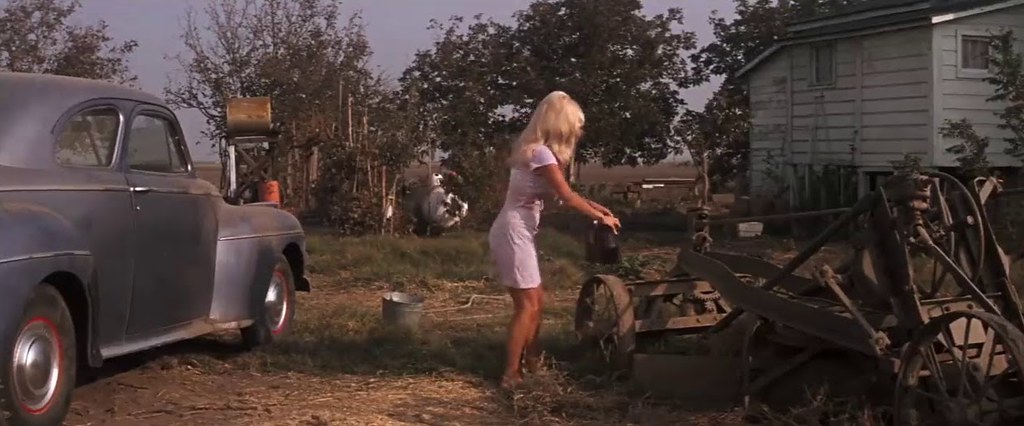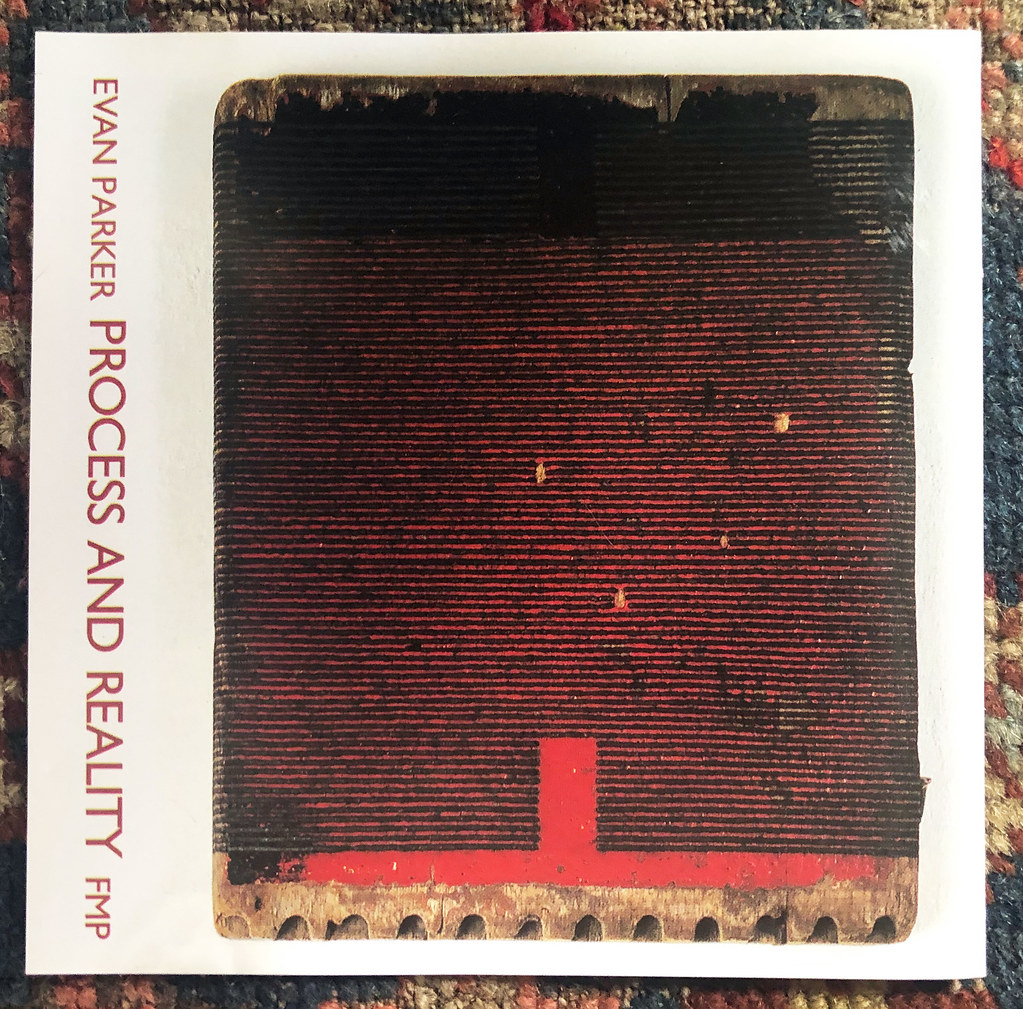Jim Jarmusch - The Dead Don't Die - 2019
I like to see every new Jarmusch film in the theater. His new film has a good concept - a comedic "hipster" interpretation of the zombie film with Romero's Night of the Living Dead as a starting point. A slightly alternative take in the zombie film history that have highlights like 23 Days Later and not necessarily good but prominent works like The Walking Dead. The zombie film has always resonated strongly with me because we basically walk amongst the living dead, are governed by the living dead and have a dead bastard at the helm. Jarmusch is making reference to much of this with his new film both seriously and absurdly. One scene I loved was when each cop shows up at the diner to bear witness to the remains of the first kills. Bill Murray, Adam Driver, and Chloë Sevigny separately walk into the same dismal scene where a sort of country muzak (as I heard it, maybe it was a respected song?) playing on the speakers. Their perceptions are all the same, cut for cut, in a way that reminding this viewer of Sam Beckett and his absurdity-repetition like that in Watt and the sucking stones from Malloy. Hearing Jarmusch's dislike of the genre in an interview shed some light on the film for me, I wonder if he had a bit more of a relationship with zombies, the film could have been more successful like his Only Lovers Left Alive. In addition, one wonders if the story would have potentially been more potent without self referencing itself via the fourth wall?
6.17.2019
Fritz Lang - The Big Heat - 1953
(rewatch)
I personally prefer Lang's American films Ministry of Fear and The Return of Frank James to this film but it surely is a classic worth watching a few times.
Irving Lerner - Murder by Contract - 1958
Bizarre story of a overly confident and incompetent contract killer played by Vince Edwards.
Terence Davies - The Long Day Closes - 1992
(rewatch)
Davies' stunning portrait of a man recalling his youth reflected through the eyes of a boy surrounded by cinema, atmosphere, and a loving family filtered through post-war Britain.
6.19.2019
Jacques Tourneur - Nightfall - 1956
Filling in gaps lately in my Noir exposure (which honestly is pretty basic). I really loved this film with Anne Bancroft and Aldo Ray giving solid natural performances lacking the ham that is common in this period, especially Bancroft who just masters some sort of non-acting actorshippe. The Criterion Channel's supplementary video for these Columbia Noir films mentions how many of these Noirs don't have the traditional femme fatale which honestly is refreshing.
Takashi Miike - Rainy Dog - 1997
Part of Miike's Black Society trilogy of which I have seen none. Solid gangster film that revolves around the relationship between a foreign mercenary, his son and a prostitute. Really great atmospheric and quiet film.
Jim Sheridan - In the Name of the Father - 1993
(rewatch)
Great use of Hendrix's Voodoo Child (Slight Return) during the riot sequence. Great film when Day-Lewis was on a roll, even though he has always been on a roll. Pete Postlethwaite in addition is one of those actors that grabs your attention with everything he is in.
6.20.2019 - 6.23.2019
Craig Mazin - Chernobyl episodes one through three - 2019
Currently going through this totally devastating and brilliant mini series on HBO with music by Hildur Guðnadóttir and stunning performances by Jared Harris, Stellan Skarsgård, and Emily Watson, three of my favorite actors. I remember as a boy of about age 12 the disaster had a strangely shocking effect on me even though I wonder if I understood the gravity of the situation. Years later the work 4 Rooms by Jacob Kirkegaard and the photographic survey Zones of Exclusion: Pripyat and Chernobyl by Robert Polidori resonated really strongly with me, also Ilya Kabakov's School No.6 which I saw in Marfa Texas. The complete annihilating qualities of the disaster make this series honestly hard to watch and quite depressing but so relevant today. On a side note - Jared Harris is often times considered the son of the great British actor Richard Harris. Years of watching him in films and shows such as Happiness, Benjamin Button, Mad Men and here, I believe Richard Harris should now be considered the father of Jared Harris? He is really one of the top actors working now and has made a very strong impression in the history of the moving image. I would look forward to him just even reading the phone book for 5 hours!
6.21.2019
Jim Jarmusch - Down by Law - 1986
(rewatch)
One of Mr. Jarmusch's best films, so beautifully shot by Robby Müller. Tom Waits' repetition of "Bob Frost" is wonderful, an underrated actor as is John Lurie.
6.22.2019
Hirokazu Koreeda - Still Walking - 2008
Ozu-esque family drama in which a family passes some time exhibiting a bit of subtle but very uncomfortable family tension and dysfunction. The dysfunction can be seen clearly when the family invites the saved boy (their son passed away saving the child) each year to the house and basically showing him very mild hatred in the form of non-kindness and disrespect. Koreeda's steady actor Hiroshi Abe reminds this viewer very much of Tatsuya Nakadai from The Human Condition and many Kurosawa films, interesting guy, as is the actress Kirin Kiki who appears in many of his films. The sequence with Kirin Kiki frantically pursuing the yellow butterfly around the house thinking it is her son reincarnated was extremely touching, not only because of her actorshippe, but also the work of the dp and cameraman who so expertly follow the two around letting them go in and out of focus in a deeply satisfying way, no idea how they shot that.







